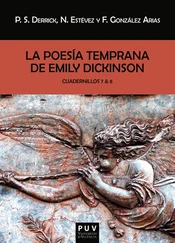Emily Mandel - Station Eleven
Здесь есть возможность читать онлайн «Emily Mandel - Station Eleven» весь текст электронной книги совершенно бесплатно (целиком полную версию без сокращений). В некоторых случаях можно слушать аудио, скачать через торрент в формате fb2 и присутствует краткое содержание. Год выпуска: 2014, ISBN: 2014, Издательство: Knopf, Жанр: Старинная литература, на английском языке. Описание произведения, (предисловие) а так же отзывы посетителей доступны на портале библиотеки ЛибКат.
- Название:Station Eleven
- Автор:
- Издательство:Knopf
- Жанр:
- Год:2014
- ISBN:9780385353311
- Рейтинг книги:4 / 5. Голосов: 1
-
Избранное:Добавить в избранное
- Отзывы:
-
Ваша оценка:
- 80
- 1
- 2
- 3
- 4
- 5
Station Eleven: краткое содержание, описание и аннотация
Предлагаем к чтению аннотацию, описание, краткое содержание или предисловие (зависит от того, что написал сам автор книги «Station Eleven»). Если вы не нашли необходимую информацию о книге — напишите в комментариях, мы постараемся отыскать её.
Station Eleven — читать онлайн бесплатно полную книгу (весь текст) целиком
Ниже представлен текст книги, разбитый по страницам. Система сохранения места последней прочитанной страницы, позволяет с удобством читать онлайн бесплатно книгу «Station Eleven», без необходимости каждый раз заново искать на чём Вы остановились. Поставьте закладку, и сможете в любой момент перейти на страницу, на которой закончили чтение.
Интервал:
Закладка:
Two years ago she’d done this walk with Charlie, both of them delaying the inevitable in the final hours before the Symphony left. “These two years will go quickly,” Charlie had said, and they had gone quickly, when Kirsten considered it. Up to Kincardine, back down the coastline and down the St. Clair River, winter in one of the St. Clair fishing towns. Performances of Hamlet and Lear in the town hall, which had previously been a high-school gymnasium, The Winter’s Tale, Romeo and Juliet , the musicians performing almost every night, then A Midsummer Night’s Dream when the weather grew warmer. An illness that passed through the Symphony in spring, a high fever and vomiting, half the Symphony got sick but everyone recovered except the third guitar—a grave by the roadside outside of New Phoenix—and we continued onward, Charlie, like always, all those months, and always I thought of you here in this town.
There was someone on the road ahead, walking quickly to meet her. The sun was skimming the tops of the trees now, the road in shadow, and it was a moment before she recognized Dieter.
“We should be getting back,” she said.
“I have to show you something first. You’ll want to see this.”
“What is it?” She didn’t like his tone. Something had rattled him. She told him what the midwife had said while they walked.
He frowned. “She said they’d left? Are you sure that’s what she said?”
“Of course I’m sure. Why?” At the northern edge of town a new building had been under way at the very end, the foundation poured just before the Georgia Flu arrived. It was a concrete pad, bristling with metal bars, overgrown now with vines. Dieter stepped off the road and led her down a path behind it.
All towns have graveyards, and St. Deborah by the Water’s had grown considerably since she’d wandered here two years ago with Charlie. There were perhaps three hundred graves, spaced in neat rows between the abandoned foundation and the forest. In the newest section, freshly painted markers blazed white in the grass. She saw the names at some distance.
“No,” she said, “oh no, please …”
“It’s not them,” Dieter said. “I have to show you this, but it isn’t them.”
Three markers in a row in the afternoon shadows, names painted neatly in black: Charlie Harrison, Jeremy Leung, Annabel (infant) . All three with the same date: July 20, Year 19 .
“It’s not them,” Dieter said again. “Look at the ground. No one’s buried under those markers.”
The horror of seeing their names there. She was weakened by the sight. But he was right, she realized. The earliest markers at the far end of the graveyard were unmistakably planted above graves, the dirt mounded. This pattern continued through to a cluster of thirty graves from a year and a half ago, the dates of death within a two-week span. An illness obviously, something that spread fast and vicious in the winter cold. But after this, the irregularities began: about half of the graves following the winter illness looked like graves, while the others, Charlie’s and Jeremy’s and their baby’s among them, were markers driven into perfectly flat and undisturbed earth.
“It doesn’t make sense,” she said.
“We could ask your shadow.”
The girl who’d followed Kirsten through town was standing at the edge of the graveyard by the foundation, watching them.
“You,” Kirsten said.
The girl stepped back.
“Did you know Charlie and Jeremy?”
The girl glanced over her shoulder. When she returned her gaze to Kirsten and Dieter, her nod was barely perceptible.
“Are they …?” Kirsten gestured toward the graves.
“They left,” the girl said very quietly.
“It speaks!” Dieter said.
“When did they—” But the girl’s nerve failed her before Kirsten could finish the question. She darted out of sight behind the foundation, and Kirsten heard her footsteps on the road. Kirsten was left alone with Dieter, with the graves and the forest. They looked at one another, but there was nothing to say.
A short time after they returned to the Walmart, the tuba returned to camp with his own report. He’d tracked down an acquaintance who lived in the motel. There’d been an epidemic, the man had told him. Thirty people had died incandescent with fever, including the mayor. After this, a change in management, but the tuba’s acquaintance had declined to elaborate on what he meant by this. He did say that twenty families had left since then, including Charlie and the sixth guitar and their baby. He said no one knew where they’d gone, and he’d told the tuba it was best not to ask.
“A change in management,” the conductor said. “How corporate of them.” They’d discussed the grave markers at some length. What did the graves mark, if not deaths? Did the markers await a future event?
“I told you,” Kirsten said, “the midwife said there was a prophet.”
“Yeah, that’s fantastic.” Sayid was unpacking a crate of candles without looking at anyone. The sixth guitar was one of his closest friends. “Just what every town needs.”
“Someone must know where they went,” the conductor said. “They must’ve told someone. Doesn’t anyone else have friends here?”
“I knew a guy who lived in the IHOP,” the third cello said, “but I checked earlier and it was boarded up, and then someone in the Motor Lodge said he’d left town last year. No one would tell me where Charlie and Jeremy went.”
“No one tells you anything here.” Kirsten wanted to cry but instead she stared at the pavement, pushing a pebble back and forth with her foot.
“How could we have left them here?” Lin shook out her fairy costume, a silver cocktail dress that shimmered like the scales of a fish, and a cloud of dust rose into the air. “Graves,” she said. “I can’t even begin to—”
“Not graves,” Dieter said. “Grave markers .”
“Towns change.” Gil leaned on his cane by the third caravan, gazing at the buildings and gardens of St. Deborah by the Water, at the haze of wildflowers along the edges of the road. The McDonald’s sign caught the last of the sunlight. “We couldn’t have predicted.”
“There could be an explanation,” the third cello said, doubtful. “They could have left and, I don’t know, someone thought they were dead?”
“There’s a prophet ,” Kirsten said. “There are grave markers with their names on them. The midwife said I should stop asking questions and that we should leave quickly. Did I mention that?”
“Did we not acknowledge you loudly enough the first six times you mentioned it?” Sayid asked.
The conductor sighed. “We can’t leave till we know more,” she said. “Let’s get on with the evening, and we’ll make inquiries after the show.”
The caravans were parked end to end, the Midsummer Night’s Dream backdrop—sewn-together sheets, grimy now from years of travel, painted with a forest scene—hung on them. Alexandra and Olivia had gathered branches and flowers to complete the effect, and a hundred candles marked the edges of the stage.
“I was talking to our fearless leader,” August said to Kirsten later, between tuning his instrument and going to join the rest of the string section, “and she thinks Charlie and the sixth guitar must have gone south down the lakeshore.”
“Why south?”
“Because west’s the water, and they didn’t go north. We would’ve run into them on the road.”
The sun was setting, the citizens of St. Deborah by the Water gathering for the performance. Far fewer of them now than there had been, no more than thirty in two grim-faced rows on the grit of the former parking lot. A wolfish gray dog lay on its side at the end of the front row, its tongue lolling. The girl who’d followed Kirsten was nowhere in sight.
Читать дальшеИнтервал:
Закладка:
Похожие книги на «Station Eleven»
Представляем Вашему вниманию похожие книги на «Station Eleven» списком для выбора. Мы отобрали схожую по названию и смыслу литературу в надежде предоставить читателям больше вариантов отыскать новые, интересные, ещё непрочитанные произведения.
Обсуждение, отзывы о книге «Station Eleven» и просто собственные мнения читателей. Оставьте ваши комментарии, напишите, что Вы думаете о произведении, его смысле или главных героях. Укажите что конкретно понравилось, а что нет, и почему Вы так считаете.












